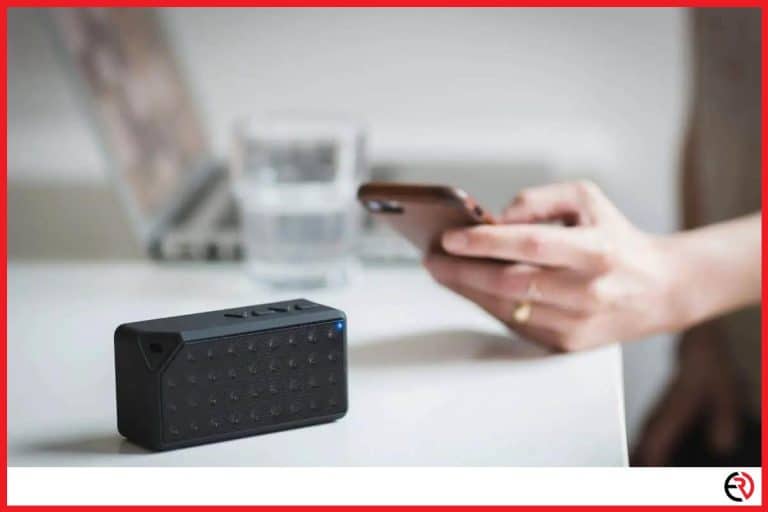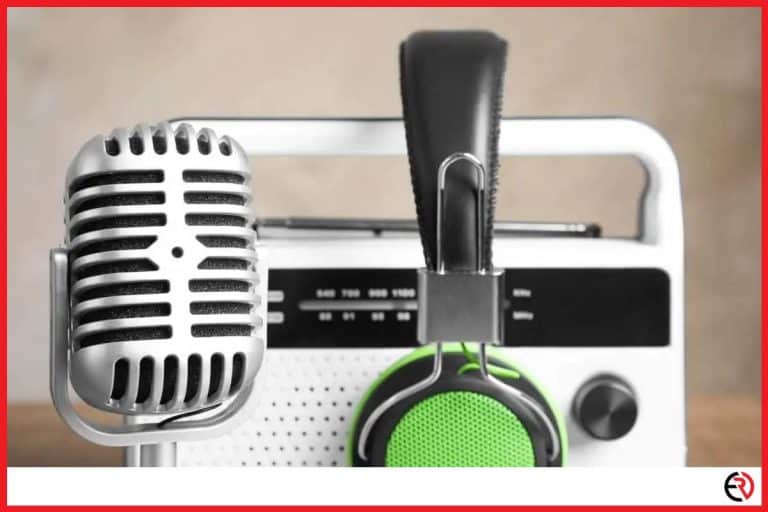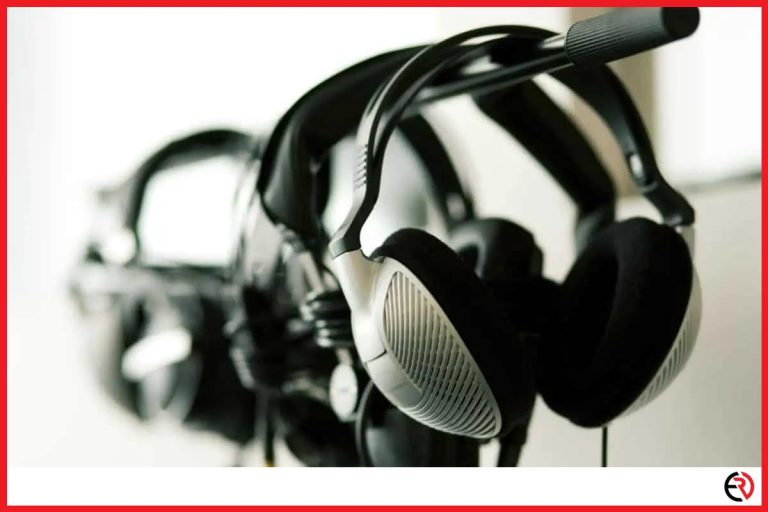Why Your Headphones Sound Like They Are Underwater (With Fixes)
This post may contain affiliate links which means that, if you choose to make a purchase, I may earn a small commission at no extra cost to you.
Did you just buy your headphones a few months ago and they are starting to malfunction? Are you tired of headphones sounding like they are submerged 1000ft deep? There are several reasons why this happens, most of which can be easily fixed at home. So don’t dispose of them just yet, as I am going to discuss the cause and how to fix all of them.
Headphones could sound like they are underwater because of faulty cables and sound cards, damaged or corrupted drivers, unoptimized equalizer settings, moisture damage, dirt accumulation (ear wax, lint), over usage, and much more. Fortunately, most of them are fixable.
How does a faulty TRRS cable cause headphones to sound like they are underwater?
The TRRS cable inside a headphone exterior is the weakest wire. Their primary role is to transfer electrical signals to the speakers. With constant usage, sudden jerks, and incessant stretching, the cables weaken over time. In extreme cases, the sound appears to be coming from underwater.
As you know, a headphone is made up of several components, the TRRS cable being one of the most fragile among them. They get worn out quite easily and cause several kinds of sound distortions.
It’s so sensitive that you don’t even need to extensively damage it to produce such noises. It can even get damaged if you insert the plug too deep into your headphone socket. So, exercise caution the next time you’re inserting the headphone jack.
It’s true that most people, including myself, take these cables for granted. We treat them like pets for the first few days and then neglect them. I regret the day I broke one of my premium Bose headsets.
How to fix it?
Unfortunately, there is no easy way to fix this other than replacing the cable, which is not worth the hassle. You are better off buying a new headphone at this point.
Do blown-out speakers cause underwater-like sound?
Yes, a blown-out speaker can indeed cause an underwater-like sound. It usually happens when the voice coil is partially or fully damaged.
Each speaker has a small component known as a voice coil that vibrates and produces the sound you hear. These coils can only handle a limited amount of power and overexerting them can cause them to rupture.
Playing your speakers at high volume for a prolonged period can damage them and in extreme cases destroy them altogether. The speakers will produce an underwater-like sound if it’s only partially damaged and no sound is totally destroyed.
How to fix it?
As you can see from the video, replacing a speaker coil is no easy task. It’s impossible to do by yourself unless you have the technical skills, in which case you have my blessing.
You can consider repairing the headphones if they were expensive ones and cannot be replaced easily. I recommend finding a good technician and leaving the repair job to them instead of tinkering it with yourself.
How does an incorrect equalizer cause underwater-like sounds?
An equalizer lets you adjust the volumes of individual frequencies within any given audio. It alters the color of audio signals and gives you complete control over your audio file. Mishandling can cause severe audio distortions including underwater-like sounds.
An equalizer is undoubtedly the most important tool in a musical kit. You can make your audio appear more articulate by increasing the treble or making it sound heavier by increasing the bass.
However, an equalizer consists of many filters and each of them imparts a slight delay in the sound. This effect is called “Group Delay” and is one of the reasons why you get distortions or underwater-like sounds if you tamper with it too much.
How to fix it
Always use the inbuilt software you have on your phone/computer. If you think you have messed it up, simply revert back to the “Normal” preset and keep adjusting until you get the sound effect you are looking for.
If your device does not have an equalizer, you can download third-party software instead. However, be careful as it may not be optimized, and messing with it can cause underwater sounds and even damage it in the long run.
Here is a video to help you set an equalizer in the proper manner and without exerting any pressure on the voice coils of your speakers. Adjusting your equalizers is one of the best ways to stop hearing underwater-like sounds coming from your speakers.
Can dirty headphones cause underwater-like sounds?
Although dirty headphones do not cause underwater-like sounds exactly, the audio is very much muffled and comes quite close to the underwater effect.
As you keep using your headphones, over time dust, lint, and softened ear wax gets accumulated within the pores of the seeker grill. If you do not clean them at least once a month, the dirt clogs up the pores and prevents the smooth passage of sound.
I know many friends who played music at full volume simply because they could not hear the music due to the accumulated dirt. They ended up damaging the voice coil and had to throw those headphones away.
How to fix it
The best way you can fix this problem is by addressing it before it surfaces. Clean your headphones at least once a month and try to maintain a neat and tidy ear canal.
To clean your headphones:
1. Use a blower or a can of compressed air to blow off any solid debris.
2. Wrap some tape around a paperclip with the sticky side pointing outwards. Gently drag the entire clip along the headphones to get rid of very fine particles.
3. Finally, put some isopropyl alcohol on a cotton swab and gently rub it along the headphone to clean off even the finer particles.
Any kind of interference should be resolved by now. Try the other aforementioned solutions in case the problem still persists.
Can moisture damage cause underwater-like sounds?
Yes, moisture damage can cause underwater or static-like sounds. Headphones, other than waterproof ones, cannot handle moisture. If not dried immediately, non-waterproof headphones will stop working in a matter of a few weeks, depending on how badly the internal circuitry got damaged.
If you’re an outdoorsy person and happen to live in a humid climate, then you should at least consider getting water-resistant headphones. Even excess sweat during workout sessions can cause internal circuit damage, causing them to produce underwater-like sounds.
How to fix it
I cannot remember the number of times I accidentally “washed” my headphones along with my trousers. I forgot to take them out before laundry. As a result, they got submerged in water for about a minute or two.
Water/moisture damaged parts can only be fixed by replacing the damaged parts, which is not possible for low to medium range headphones. It’s better to buy new ones instead. However, you can minimize the damage by putting the headphones out to dry in the sunlight. Leave them for about 30 mins to an hour.
They might work for a few months if you’re lucky then probably a year, but the sound quality will never be the same.
Conclusion
Headphones usually sound like they are underwater because of several internal issues and hopefully you know how to tackle most of them. If any of the fixes do not work or if the issue seems to be out of your league, seek technical assistance at once instead of tinkering and trying to fix it yourself, or whatever chance you have of salvaging it might go down the drain as well. Good luck!







